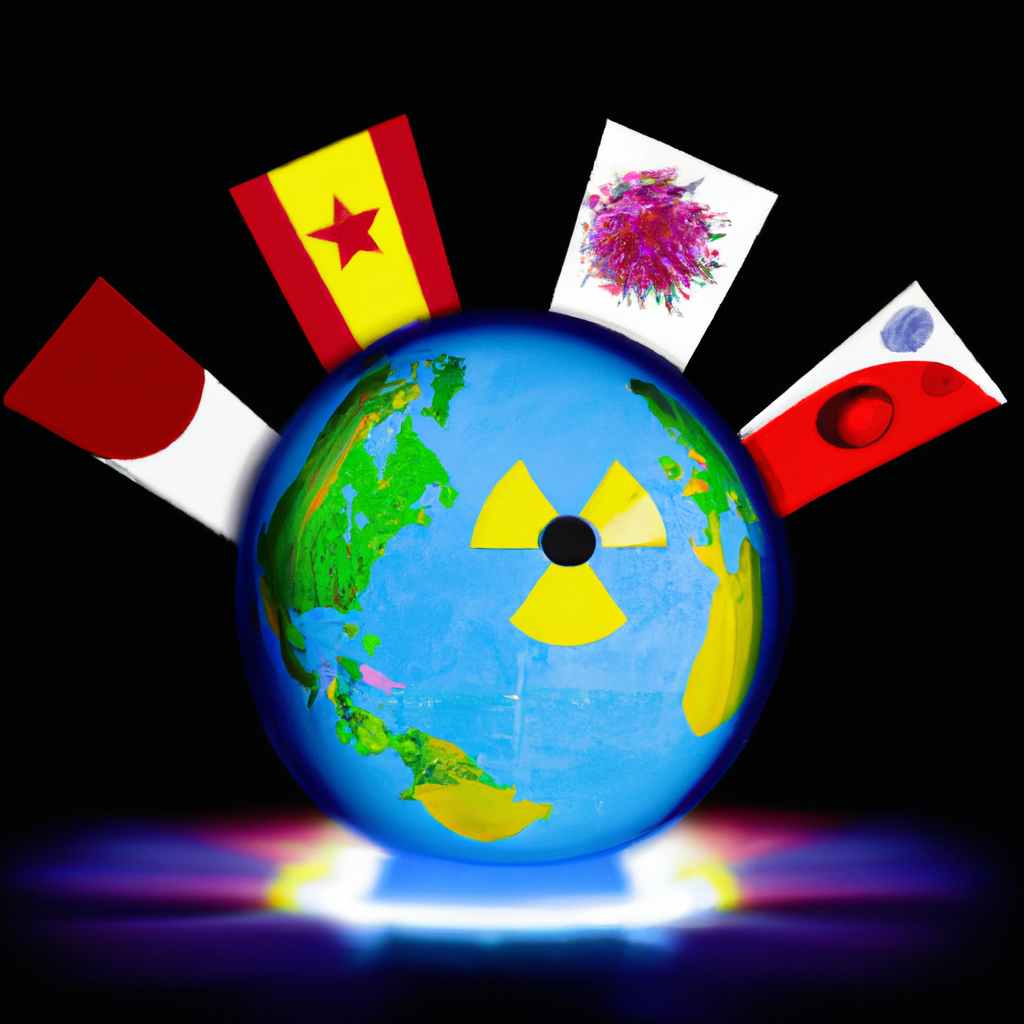Nuclear energy plays a significant role in national security across the world. This form of energy has been used by many countries for various purposes, including power generation, medical purposes, and nuclear weapons. In this article, we’ll explore how nuclear energy is being used around the world to enhance national security.

Nuclear Energy and National Security
Nuclear energy has become a critical component of national security in many countries. It is used for power generation, which ensures the uninterrupted supply of electricity to critical infrastructure like hospitals, military bases, and government facilities. Nuclear power plants are also essential for emergency preparedness, as they can continue to operate even during natural disasters or other emergencies that may disrupt conventional power sources.
In addition to power generation, nuclear energy is also used for medical purposes. Nuclear medicine is used to diagnose and treat various illnesses like cancer, heart diseases, and thyroid disorders. It is also used in the production of medical isotopes, which are used in medical imaging and cancer treatment.
However, the most controversial use of nuclear energy is for the development of nuclear weapons. Many countries have developed nuclear weapons as a deterrent against potential aggressors. The possession of nuclear weapons is seen as a symbol of power and prestige and provides an added level of security for countries.
Nuclear Energy and The United States
The United States is one of the largest users of nuclear energy for both peaceful and military purposes. The country has over 90 nuclear reactors that generate about 20% of its electricity needs. The US Navy also operates nuclear-powered submarines and aircraft carriers that provide unmatched military capabilities. These vessels can remain at sea for long periods without refueling, making them critical for power projection and force protection.
The United States also has a significant nuclear arsenal, with over 4,000 nuclear warheads, making it one of the largest nuclear powers in the world. The country has used its nuclear arsenal as a deterrent against potential aggressors and has played a vital role in the development of nuclear non-proliferation treaties.
Nuclear Energy and Russia
Russia is another significant player in the nuclear energy field, with over 38 nuclear reactors generating about 18% of its electricity. The country also has a significant nuclear arsenal, with over 4,300 nuclear warheads, making it the largest nuclear power in the world.
Russia’s nuclear arsenal is seen as a critical component of its national security strategy, and the country has invested heavily in modernizing its nuclear weapons systems. Russia’s nuclear-powered submarines are among the most advanced in the world and have played a vital role in its military operations.
Nuclear Energy and China
China is rapidly expanding its nuclear energy capacity, with over 50 nuclear reactors currently in operation and several more under construction. The country’s nuclear energy program is part of its broader strategy to reduce its dependence on fossil fuels and improve its energy security.
China has also been investing heavily in its nuclear weapons program and is believed to have between 250 and 320 nuclear warheads. The country’s nuclear weapons program has been shrouded in secrecy, and little is known about its capabilities.
Conclusion
Nuclear energy plays a critical role in national security across the world. It is used for power generation, medical purposes, and the development of nuclear weapons. The possession of nuclear weapons is seen as a symbol of power and prestige and provides an added level of security for countries.
The United States, Russia, and China are the largest users of nuclear energy for both peaceful and military purposes. These countries have invested heavily in their nuclear programs and have developed advanced nuclear weapons systems.
In conclusion, nuclear energy remains a controversial issue, and its use for military purposes is a significant concern for the international community. However, nuclear energy remains a critical component of national security, and its benefits cannot be ignored.







